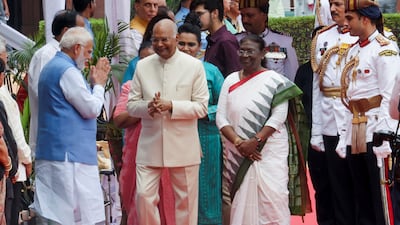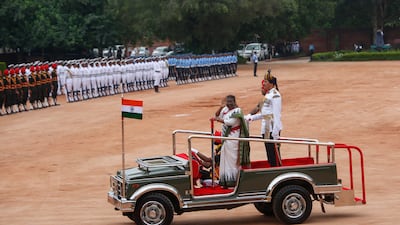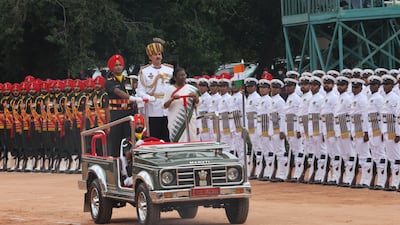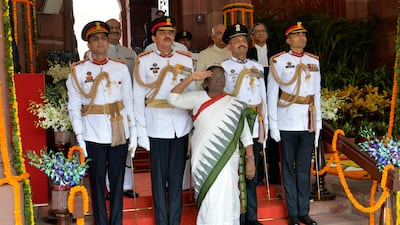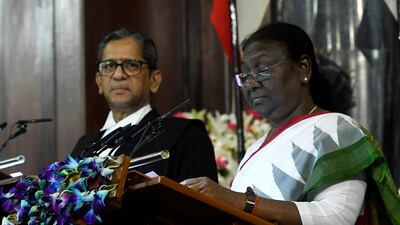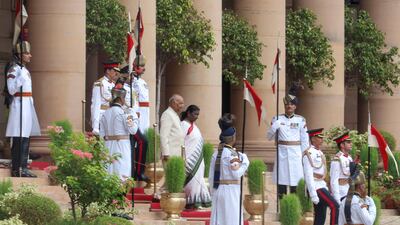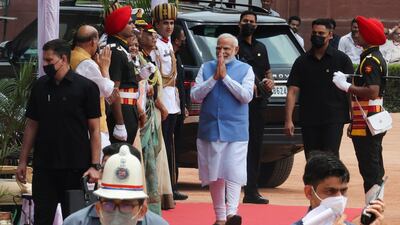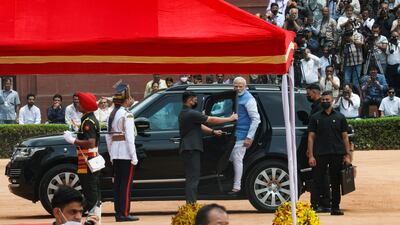Droupadi Murmi was sworn in as India’s 15th President on Monday, the first from the nation's tribal communities to become head of state.
Ms Murmu, 64, is a Santhal and the second woman to take the top constitutional post.
The ceremony took place in Parliament. Chief Justice of India NV Ramana administered the oath to Ms Murmu.
A 21-gun salute honoured the new president.
“Today, I assure all the countrymen, especially the youth of India and the women of India, that while working in this position, their interests will be paramount for me,” Ms Murmu said at the ceremony.
“In the light of the constitution, I will discharge my duties with full loyalty. For me, the democratic-cultural ideals of India and all the countrymen will always be the source of my energy.”
Ms Murmu is from Mayurbhanj in eastern Odisha state and has been a member of the ruling Hindu nationalist Bharatiya Janata Party for many years.
She won 69 per cent of the vote last week, defeating the opposition nominee, Yashwant Sinha, an 84-year-old bureaucrat-turned-politician.
She replaces Ramnath Kovind, a member of the marginalised Dalit community.
More than 4,800 politicians and parliamentarians cast their votes on Monday to choose between Ms Murmu and Mr Sinha.
At least 107 from opposition parties voted for Ms Murmu.
India's president is a ceremonial head with no real powers and mostly acts on the advice of the government.
Still, getting their candidate elected as president gives political parties the opportunity to demonstrate their nationwide political strength.
Political parties routinely back candidates from marginalised groups like Dalits, earlier considered untouchables, women and religious minorities.
Ms Murmu has spent nearly two decades in politics and social service.
She was also appointed as the first tribal governor of Jharkhand, a tribal-dominated state, in 2015.
